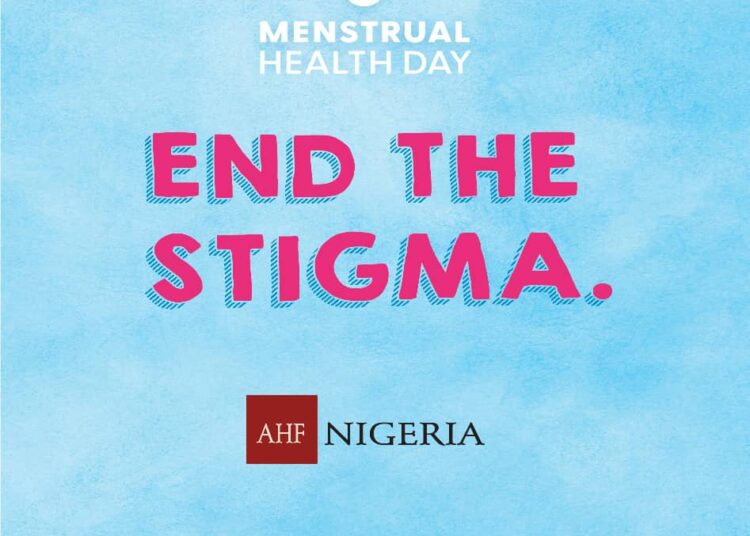AIDS Healthcare Foundation (AHF) has called on everyone globally to #EndTheStigma on periods for the 1.8 billion people who menstruate worldwide and make ending period poverty a top priority in countries of the world.
The Foundation made the call to commemorate the 2023 Menstrual Health Day (MH Day). MH Day is commemorated annually on May 28. It began in 2014 to recognize the need for increased menstrual health education and resources. AHF country teams have planned empowering, entertaining, and educational “End the Stigma” commemorative MH Day events for 2023.
In a press statement made available to LEADERSHIP, AHF Director of Global Advocacy and Policy, Guillermina Alaniz, said; “Nothing can stop us from having periods, but the harmful stigma and discrimination around menstruation, along with the lack of access to menstrual health products and facilities, has the power to stop us from thriving and living healthy lives.
“Menstrual health must be a priority worldwide, particularly in lower-income countries, because people who menstruate are in danger of being left behind due to inadequate health and safety around periods. It’s time to ‘End the Stigma’ on menstruation and ensure that period products and safe facilities are available to everyone, without shame or discrimination.”
In the statement, the Foundation said it will be converging on Korfa Pada, Keffi, Nasarawa state with partners, for a community rally and sensitization which will start from the palace of the Emir, enroute the Federal Medical Center (FMC) roundabout and back to the Emir’s palace where young women and adolescents’ girls with boys would gather for a menstrual health talk, which will also see AHF give out free sanitary pads to participants.
AHF Nigeria Country Program Director, Dr. Eche Ijezie, said AHF will continue to be at the forefront of advocacy to ensure indigent young women and girls who lack access to sanitary products can have unhindered access.
He said; “It is important to note that AHF have been partnering with ministries and agencies of government to influence policies in support of this goal across the states of our operation. We are poised to place menstrual health issues as a key national agenda, and, it is in this regard that we are committing resources to creating greater awareness in the general population and bringing different stakeholders to join the conversation.
“Young women and girls, irrespective of their location or social status must be able to have their periods in a safe and conducive environment and without the difficulties that a lack of access to sanitary products presently constitutes,” he added.
About a quarter of the world’s population menstruates, yet 500 million will experience period poverty, or the lack of access to menstrual health products, safe and clean facilities, and accepting communities. These barriers can lead to poor health outcomes, missing school or work by up to 20%, and negative effects on mental health.











